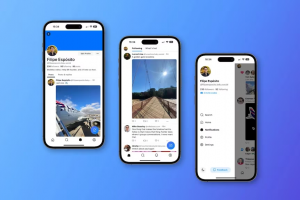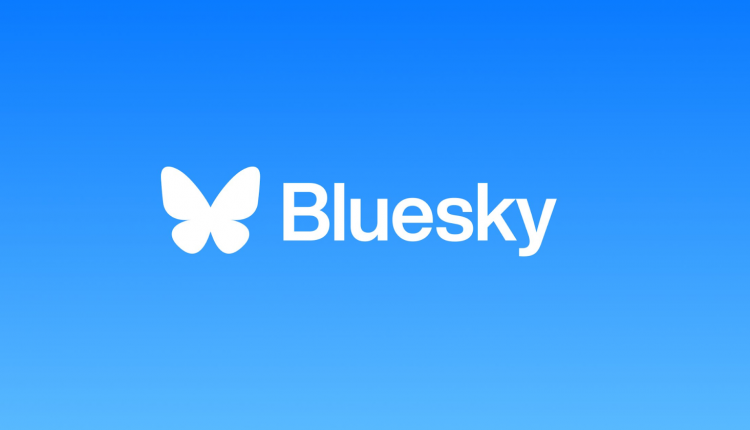The Rise of Bluesky as a New Social Media Alternative
How Bluesky Is Changing the Social Media Landscape with Its Decentralized Model and Rapid Growth.
Social media is a crowded space, with platforms like Facebook, Instagram, and Twitter (now rebranded as X) dominating the scene for years. However, a new contender, Bluesky, has emerged, offering a fresh alternative to the traditional social media model. Developed by Jack Dorsey, co-founder of Twitter, Bluesky promises a decentralized approach that prioritizes user control, privacy, and content moderation. The platform has seen significant growth recently, positioning itself as a potential competitor to the social media giants that many users have grown disillusioned with.
What is Bluesky?
Bluesky is a social media platform designed to provide users with more control over their online interactions. Unlike traditional platforms, which are controlled by a single company, Bluesky operates on a decentralized model, using an open-source protocol called the AT Protocol. This allows users to interact with various instances or versions of the platform, making it more flexible and user-centric.
The platform was launched in 2019 by Jack Dorsey, co-founder and former CEO of Twitter, but it remained under the radar for a while. In 2023, it began as an invite-only platform and was later opened up to the general public in 2024. Since then, Bluesky’s user base has grown rapidly, attracting users looking for a more transparent and customizable social media experience, especially in light of recent controversies surrounding Twitter under Elon Musk’s leadership.
The Meteoric Rise of Bluesky
Bluesky’s rapid growth has been impressive. After opening up for general registration in 2024, the platform’s user base skyrocketed to more than 25 million registered users within just a few months. This surge in popularity is partly due to the discontent among Twitter users, many of whom were seeking an alternative to the chaotic environment on the platform following Elon Musk’s acquisition.
Users have flocked to Bluesky for several reasons. Firstly, the platform’s decentralized nature allows for greater transparency, which appeals to those concerned about privacy and data security. Secondly, Bluesky offers a less corporate-driven experience compared to Twitter, where algorithms control what users see based on engagement metrics. Bluesky allows users to have more control over their content and who they interact with, leading to a more organic and less divisive social media environment.
What Sets Bluesky Apart?
Bluesky’s decentralization is its defining feature. Instead of relying on a central authority to control the platform, Bluesky uses the AT Protocol, which enables the creation of various instances or versions of the platform. These instances can have their own rules and moderation policies, empowering users to interact with communities that align with their values.

This model gives users more control over their online experiences. For instance, users can choose which instance to join based on their interests and preferences, and they can even build their own instances if they want to create a space that fits their vision. This flexibility allows for a more tailored and personalized social media experience compared to platforms that operate on a one-size-fits-all model.
Bluesky also offers a more transparent approach to content moderation. Unlike Twitter, where moderation decisions are often made behind closed doors by a central team, Bluesky allows individual communities to set their own guidelines and enforce their own rules. This decentralized moderation system helps to reduce the risk of censorship and bias, as decisions are made by the community rather than a central authority.
Bluesky and the Discontent with Twitter
Bluesky has capitalized on the growing dissatisfaction with Twitter, especially under Elon Musk’s leadership. Musk’s controversial decisions, such as changing the platform’s verification system, reducing content moderation, and laying off thousands of employees, have left many users frustrated. As a result, many former Twitter users have flocked to Bluesky in search of a more user-centric platform.
The timing of Bluesky’s rise is also significant. As Twitter’s credibility wanes, Bluesky has stepped in to offer a viable alternative that emphasizes user control and community-driven moderation. This has resonated particularly well with users who feel that their voices were drowned out on Twitter due to algorithmic manipulation or corporate agendas.
Bluesky’s initial invite-only model also contributed to its appeal. By limiting access, the platform created a sense of exclusivity that drew interest from early adopters. When Bluesky opened up to the public in 2024, the platform’s user base exploded as more people sought an alternative to Twitter.
Bluesky vs. Twitter: How the Platforms Compare
While Bluesky is still a small player compared to Twitter (now X), it has quickly gained a loyal following. As of 2024, Bluesky boasts around 25 million registered users, a significant number for a new platform. However, it still lags behind Twitter’s estimated 600 million monthly users.

One of the main differences between Bluesky and Twitter is the approach to content curation. On Twitter, algorithms prioritize content that generates high engagement, often leading to sensationalized or polarizing content. Bluesky, on the other hand, allows users to have more control over what they see. The platform’s decentralized nature means that users can engage with communities and content that align with their interests, creating a more personalized and less chaotic experience.
Another major difference is the way the platforms handle moderation. Twitter has been criticized for inconsistent and politically biased moderation policies, especially since Musk took over. In contrast, Bluesky’s decentralized model allows individual communities to set their own rules, which reduces the burden on a single entity to oversee all content. This approach gives users more autonomy and reduces the risk of censorship.
Bluesky’s simpler, ad-free interface is another key selling point. While Twitter is cluttered with ads and sponsored content, Bluesky focuses on providing a clean and user-friendly experience. This minimalist design allows users to engage with content without being bombarded by ads or irrelevant posts.
The Future of Bluesky
As Bluesky continues to grow, its future looks promising, but it still faces challenges. The platform will need to find a way to scale while maintaining the values that have made it so attractive to users. The decentralized model, while appealing in many ways, also presents challenges in terms of moderation and consistency. Bluesky will need to strike a balance between user control and maintaining a safe, respectful environment for all users.

Additionally, Bluesky will need to find ways to attract a broader audience. While it has gained popularity among early adopters and disillusioned Twitter users, it still needs to convince a larger and more diverse user base to join. The platform will also need to attract influencers, content creators, and brands if it hopes to rival Twitter’s dominance in the social media landscape.
If Bluesky can continue to innovate and expand its features, it has the potential to become a serious competitor to Twitter and other social media giants. With its focus on decentralization, user control, and privacy, Bluesky is positioning itself as the future of social media—a platform that is driven by its users rather than corporate interests.
A New Chapter in Social Media
Bluesky’s rise in 2024 represents a shift in the social media landscape. As users become more concerned about privacy, content moderation, and corporate control, Bluesky offers an alternative that puts power back into the hands of its users. With its decentralized model and user-centric approach, Bluesky has the potential to change the way we interact online and could be the next big thing in social media.
Whether Bluesky can rival Twitter’s dominance or become a major force in the social media world remains to be seen. But for now, it’s clear that Bluesky has made a significant impact—and it’s a platform worth watching in the years to come.

